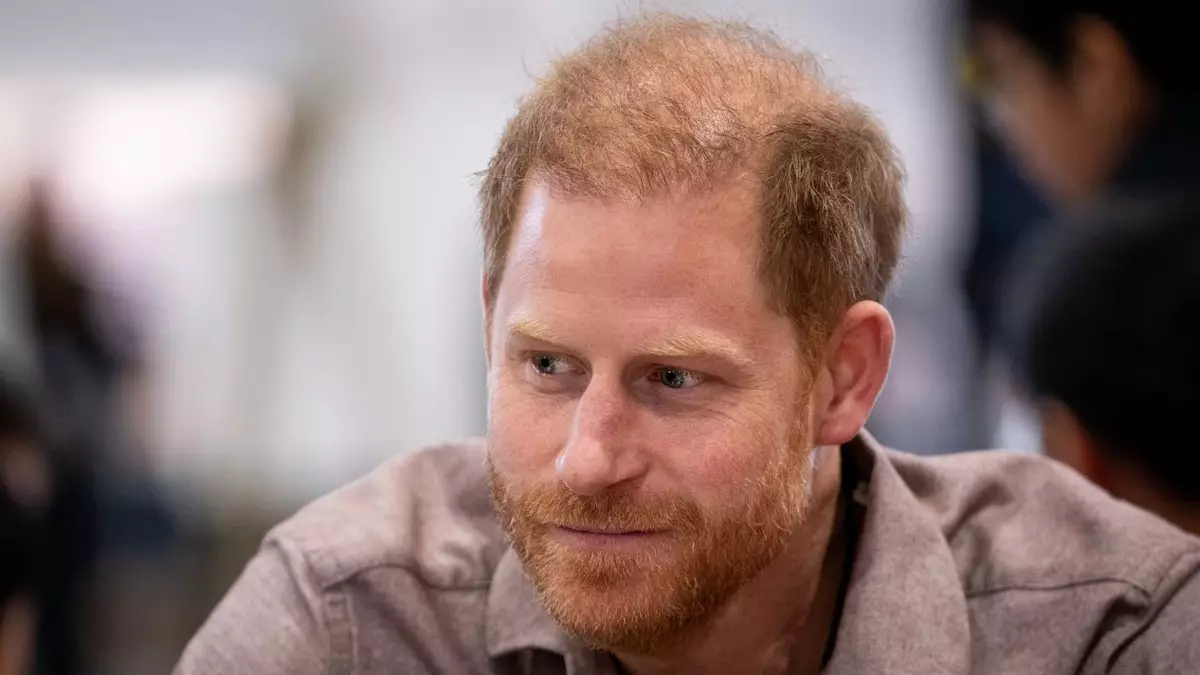In a world marked by turmoil and strife, gestures of compassion can serve as powerful reminders of our shared humanity. Prince Harry’s recent unscheduled visit to Ukraine serves as an exemplary instance of this, as he met with injured service members in a country grappling with the debilitating consequences of war. As part of his unwavering commitment to wounded veterans, the Duke of Sussex ventured to the Superhumans Center in Lviv—an orthopaedic clinic dedicated to the rehabilitation of military personnel and civilians alike. This diminutive yet robust facility offers essential services such as reconstructive surgery and psychological support, all at no cost to those in dire need.
The visit appears to transcend mere obligation; it is a manifestation of solidarity. Under the guidance of its CEO, Olga Rudneva, the Superhumans Center had extended two invitations to Harry, the first of which occurred during this year’s Invictus Games. This kind of outreach showcases the vital connections that can be formed through shared experiences and objectives. Harry’s engagement with the center indicates a commitment not only to charity but also to understanding the local context and the specific challenges faced by those affected by war. The gift of a T-shirt and bracelet marked with the inscription, “Whoever saves one life saves the world,” emphasizes the inspirational ethos that underpins Harry’s advocacy work.
The Power of Healing
Prince Harry’s visit wasn’t merely about offering support; it also provided him with a chance to gain deeper insights into the remarkable rehabilitation services offered at the Superhumans Center. His dialogue with patients, medical professionals, and the surgical team points to a dedication to informed advocacy. There’s an underlying recognition that healing goes beyond physical rehabilitation; it hinges on psychological well-being and community resilience. The shared experience of trauma and recovery creates a bond, one that Harry not only acknowledges but actively seeks to understand.
By engaging with Ukraine’s Invictus squad, Harry reinforces the notion that the global veteran community is interconnected. His presence alongside his own foundation’s veterans, who have undergone their own rehabilitation journeys, illustrates a rich tapestry of shared struggles and triumphs. This collective support and understanding beyond borders can be immensely powerful, offering a glimmer of hope to those navigating through dark times.
Service Before Self
Since launching the Invictus Games in 2014, Harry has fostered an arena where injured and sick military personnel can compete, ultimately elevating the conversation surrounding the sacrifices made by service members. His initiatives have created a legacy of empowerment, inspiring countless individuals to recognize their worth and strive for healing and achievement. His poignant remarks during the 2025 closing ceremony illustrate this sentiment, emphasizing the importance of recognizing the contributions of not just veterans but all those who support them, including family and friends.
Yet, amid this remarkable advocacy, the Duke’s ongoing legal battles in the UK reveal a troubling complexity in his life. While pushing for a review of the security arrangements provided to him and his family, Harry challenges the status quo stemming from his decision to step back from royal duties—an act that has opened up discussions surrounding personal safety for public figures. There exists a disparity between royal privilege and the real-world consequences of seeking autonomy and safety, a dichotomy painfully felt by the Duke and Duchess of Sussex.
A Reflection on Commitment
Prince Harry’s unanticipated journey to Ukraine reflects the essence of advocacy grounded in empathy and understanding. It raises pertinent questions about the role of empathy in initiating systemic change for those suffering from the ramifications of war. It challenges society to examine how prominent figures can not only raise awareness but also engage in actions that matter profoundly.
Harry’s voyage stands as a testament to the power of human connection in times of crisis. As he continues to champion the needs of injured service members, he invites others to reflect on their role in fostering compassion—reminding us all that even in the midst of chaos, we can choose to act with kindness and courage. The potential for healing through integrated support systems, shared stories, and a commitment to understanding is a testament to the enduring human spirit, regardless of one’s circumstances or affiliations.

